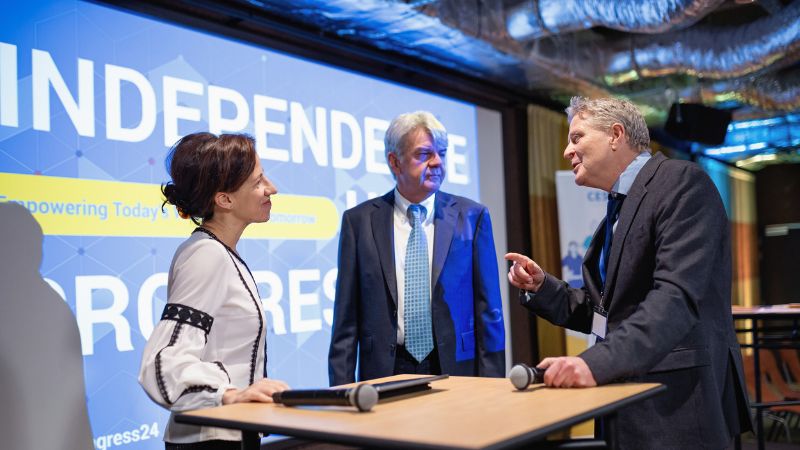

On June 1, CESI and the European Sunday Alliance held a webinar on the right to disconnect and a weekly common day of rest.
The webinar, which was organised by the European Sunday Alliance and the members of its steering group – CESI, UNI Europa, EKD, Don Bosco, COMECE, CEC, JESC, JOCI-IYCW and FAFCE – served to raise awareness about the need to establish a common day of rest workers and citizens in Europe, also in the context of a possible EU-wide right to disconnect which is currently deliberated on in the EU institutions.
Attended by almost 100 participants, it brought together members and representatives of the European Parliament, the European Commission, trade unions as well as civil society and faith-related organisations.
Speakers included MEPs Dennis Radtke (EPP), Sponsor of the European Sunday Alliance, Patrizia Toia (S&D), Co-chair of the European Parliament Intergroup on the Social Economy, Miriam Lexmann (EPP), Co-chair of the European Parliament Intergroup on Work-Life-Balance and Alex Agius Saliba (S&D), European Parliamentary Rapporteur on the right to disconnect, as well as Max Uebe, Head of unit ‘Employment Strategy’ and in charge of the European Commission’s work on the right to disconnect. The webinar was moderated by Hendrik Meerkamp from the CESI General Secretariat.
During the webinar, members of the European Sunday Alliance spoke up in favour of the introduction of a common day of synchronised free (rest) time based on its:
- social desirability: While globalisation, digitalisation and labour market de-regulation have been leading to working times which increasingly fragmentise and reach out to weekends, much time has been lost during which, in the past, citizens and families used to pursue volunteer work, civic engagement, joint social, sports or faith-related activities, domestic and care responsibilities and, more generally, to spend time together. A common day of rest would be an opportunity to make a positive statement about the world we want to live in, a world in which workers, citizens, families, communities have space to thrive together and not become increasingly anonymous, online and phantom-like.
- economic desirability: Many workers seem to have lower stress levels, are generally happier, and are able to recover better during common time off with families and friends and communities. In the long-run, they appear to be more performing at work and less often ill and absent at the same time.
The webinar also sought to clarify that:
- a broad political backing should be possible on the introduction of a common day of rest, given that the European Social Charter already fixes in article 2(5) “a weekly rest period which shall, as far as possible, coincide with the day recognised by tradition or custom in the country or region concerned as a day of rest” – and has been signed and ratified by all EU Member States.
- the EU could safely use article 153 on occupational health and safety as a legal basis to propose legislation on a common day of rest along the wording employed in the European Social Charter, given that Sunday as a day of common rest was already enshired in Article 5 of the old EU working time directive 93/104/EC on this legal basis (a clause that was abolished in the 1990s by the EU Court of Justice not because of the legal basis but because the choice of Sunday vis-à-vis another day of common rest was not justified in the directive).
CESI and the European Sunday Alliance will continue their advocacy work for a common day of rest for as many workers as possible in Europe – knowing that certain essential services always need to be maintained on a 24/7-basis but also being aware of trends according to which more and more non-essential work is performed outside common traditional core working hours – to the detriment of workers, employers and the society and economy alike.

Image Gallery
Webinar on 'The right to disconnect and a weekly common day of rest'
Related videos
Similar Posts


Urgent call by European civil society to the European leaders and the leadership of the EU
As a proud member of the European Movement International (EMI), CESI fully supports the urgent call to defend democracy, uphold fundamental rights and the rule of law, and strengthen the EU’s capacity to act in the face of geopolitical challenges.
Get in touch
with us
Confédération Européenne des Syndicats Indépendants (CESI)
Contact form
Stay up to date
Don’t miss a thing and subscribe to our newsletter
Subscribe now and receive newsletters and much more!



